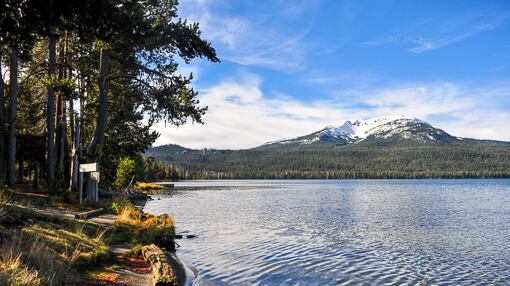WW presents "Distant Voices," a daily video interview for the era of social distancing. Our reporters are asking Portlanders what they're doing during quarantine.
Natchee Blu Barnd wants to remind Oregonians that the boundaries that make up our state were not inevitable. Depending on whom you ask, they're not even legitimate.
"The intention and the action of claiming those [lands] was maybe the first set of problems," says Barnd. "When Spanish or English settlers or explorers show up and plant the flag and say, 'We claim this in the name of the crown,' you've already started to impose a new set of boundaries on folks who have not ever agreed to this."
Barnd is a professor of ethnic studies and Native American studies at Oregon State University and the author of Native Space: Geographic Strategies to Unsettle Settler Colonialism.
Recently, he wrote the introduction for a special issue of the journal Cartographica, which compiled studies and essays about Indigenous mapping practices and how mapping has been used as a tool of colonization.
Precolonization, many Native American tribes mapped the land through stories, ceremonies and song. Now, the United States' borders, and most of its state lines, bisect the ancestral lands of Indigenous tribes.
But the borders drawn supposedly to protect tribal interests—like reservations and territories—aren't treated with the same solemnity. A few weeks ago, the Environmental Protection Agency granted Oklahoma control over environmental issues on almost all tribal lands. In Canada, lobster fishermen of the Sipekne'katik First Nation are being attacked by commercial fishermen.
"We've seen this play out over and over," says Barnd. "The respect for the territories and boundaries and claims works until there's an incentive for folks to say, 'Maybe we don't actually like that as much because there's something very valuable there.'"
"That's embedded in the very beginnings of settler colonialism," he adds. "We're going to claim more and more of these lands and more and more of these resources."
WW talked to Barnd about Indigenous mapping practices and what it will take to decolonize Oregon's maps.
See more Distant Voices interviews here.
